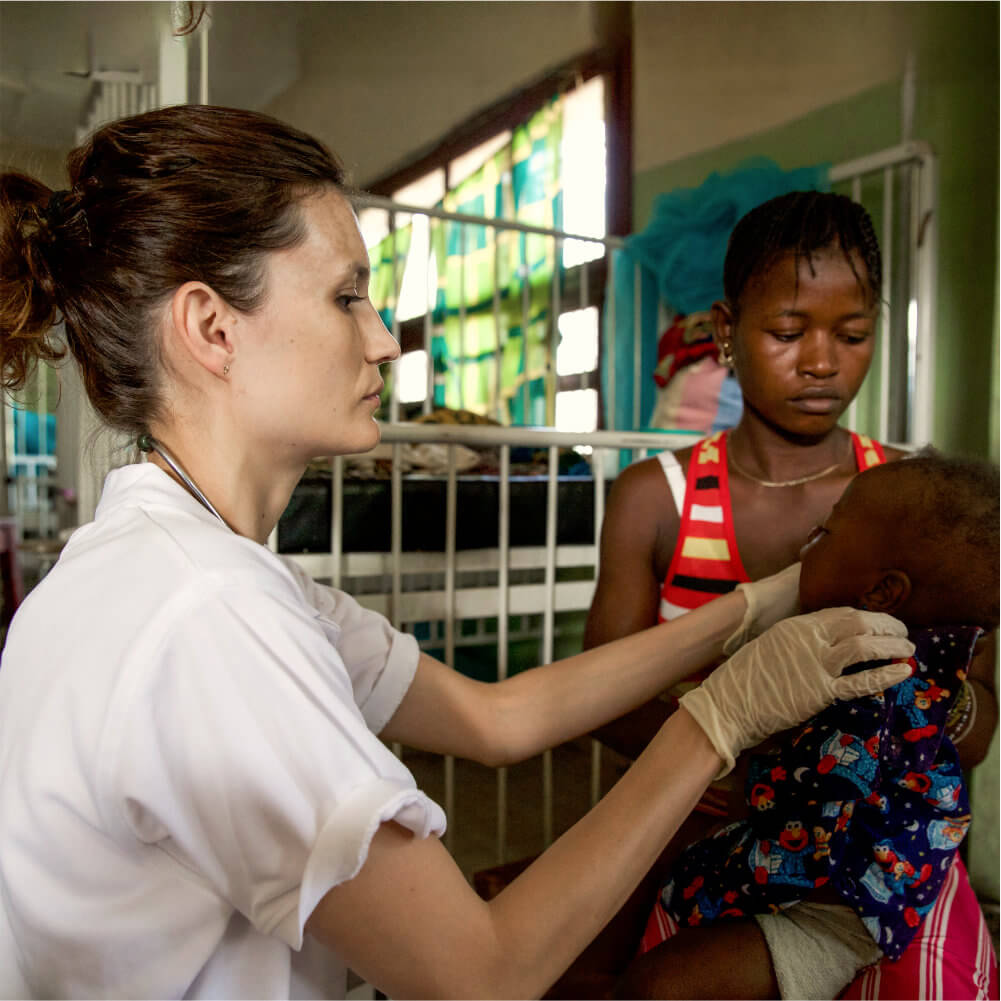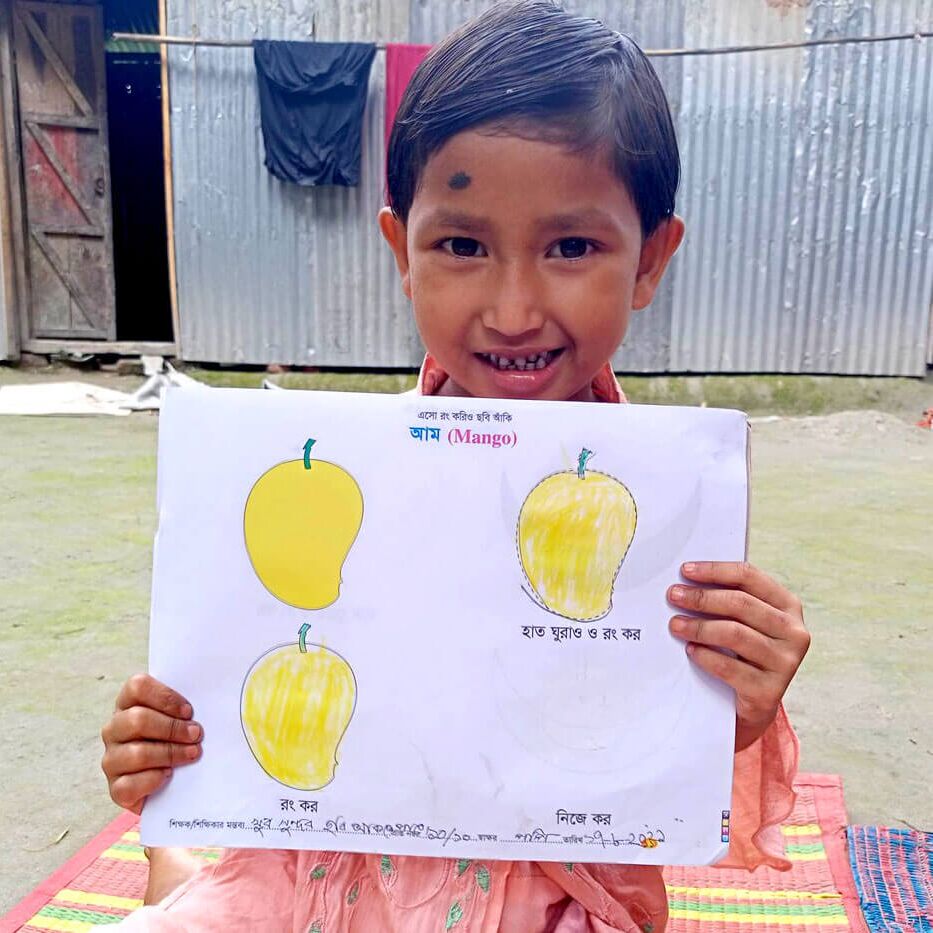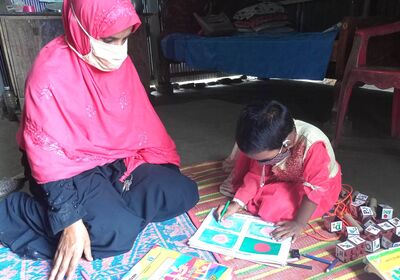




A way out of poverty
Bangladesh has one of the largest primary-school systems in the world with more than 18 million children in 122,000 primary schools throughout the country. Unfortunately, especially children from extremely poor families and from indigenous communities often don’t manage well in the primary-school system and are overburdened with the learning materials. They are also often discriminated due to their social positions. Eight-year-old Jasmin* says, ‟Nobody bothered with me at school so that I didn’t understand anything.” As a result, Yasmin left school without having even learned to read correctly, write, or calculate. Millions of children like her in Bangladesh are in the same boat, especially in remote rural regions.
A real chance for each child
To give children fair prerequisites to escape from poverty one day through education, we, together with our local partners, have started a comprehensive project for a total of 18,000 children in 60 state primary schools. Schools located in extremely poor areas in which many families from minority populations live are prioritized. Schooling, as well as the infrastructure, in such areas is often insufficient. Inclusive educational opportunities that comply with the state teaching curriculum and child-centered pedagogics hardly exist.

Our concept begins in Kindergarten. First we build classrooms for the kindergarteners because these previously were often located in storage rooms or even in the same room as the regular classes. Kindergarten teachers were hired and acquainted with appropriate teaching materials. To ensure high-quality teaching in these kindergartens, teachers are trained to create participatory and child-centered lessons during which the children can learn playfully.
The so-called ‟educational social workersˮ especially support those children who have difficulties learning. They perform home visits for these challenged children and maintain communication with their parents.
Strong teachers - strong pupils!
Our project bears fruit. Although the corona pandemic created many difficulties, and the schools in Bangladesh were closed from March 2020, we are pleased that we could continue our project. The children studied partially at home and received support from our colleagues with home visits and teaching materials. The kindergarten children received, e.g., drawing materials (special pencils and paper), kindergarten books, and educational toys. Older children borrowed books every week.
Data that we collected in the previous project demonstrate how valuable this project is for children from extremely impoverished families. 95% of the pupils who attended our project schools completed primary school. 100% of these attended the fifth grade. This is an enormous success, considering that 40% of the children in the two districts Rajshahi and Rangpur in Bangladesh quit primary school, and fewer than half attended a higher-level school after completing the 5th grade.
These children are usually the first members in their families to receive a formal education!
*Name changed
Overview of the project
- Inclusive and equal, high-value fundamental education for 18,000 children from indigenous minorities living in extreme poverty in the project districts Rangpur und Rajshahi
- Education in Kindergartens
- Strengthening teacher capacities
- Pupil support by educational social workers
- Advocacy programs in the Ministry of Education
Partner
NETZ Partnership for Development and Justice e.V. (NETZ Bangladesh) is a non-government organization (NGO) founded in 1989 with headquarters in Wetzlar and Dhaka, Bangladesh. Among its priorities are nourishment security, promotion of primary education, and strengthening of human rights. All projects are carried out in cooperation with local partner organizations in Bangladesh and India. Development Association for Self-reliance, Communication and Health (DASCOH) and Jagorani Chakra Foundation (JCF) are further local partners.
The project is co-financed by the German Federal Ministry for Economic Cooperation and Development (BMZ).





